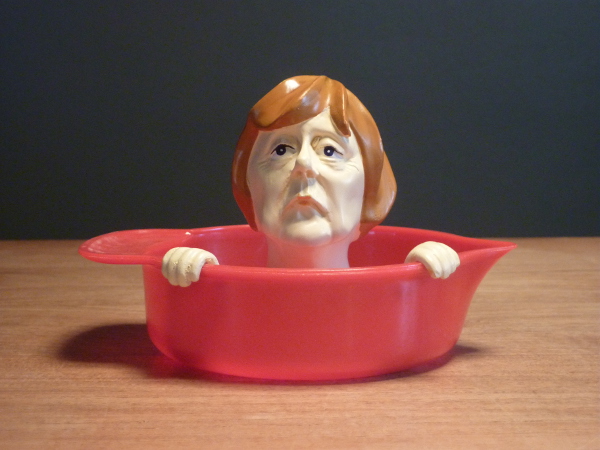At the moment, Chancellor Angela Merkel feels like that big sister that annoyed you your whole life but, sometime in your 20s, you realized had been OK all along. I’m still no fan but she’s a welcome lifeboat on this all-too-familiar sea of nationalist, fascist tendencies.
Now that Merkel’s seen as the final outpost of humane, sane governance, everyone keeps asking me if I think she’ll survive the populist virus afflicting most of the rest of the western hemisphere – she’s up for re-election this fall. My parents want to know. The neighbors want to know. Even the guy in line for the porta-potties at Saturday’s Women’s March wanted to known after he saw my wife’s German-language sign (the sign said, in Bauhaus simplicity, “Achtung”).
So will Merkel survive?

The TL;DR version: Yes, because Merkel’s been part of the right-of-center festivities all along. The right may not be too enamored with their guest of honor at the moment, but they’re not going to ask her to leave just yet.
For longer attention spans: Merkel’s part of the Christian Democrats, Germany’s dominant conservative party which is better known as the CDU and is like the Republicans in the U.S. and the, uh, Conservative Party in the U.K. Lazy conservative German voters and German voters worried about upsetting the status quo have likely been voting for her party (and indirectly her) all along. They’re not going to change.
That gives her a base.
And being atop the conservatives and sporting the incumbent’s privilege – her party wanted her to run again – she can’t be bumped aside by a populist, reality-TV star like now-President Trump. By not spouting nationalist, protectionist propaganda like the Brexiters, she’s galvanizing some of her more level-headed support but also scaring away the right edges of her party – she just lost a long-time critic within the CDU this month, for example.
But she’s doing fine. At the moment, the CDU would get 37% of the popular vote if the elections were held tomorrow (that’s according to Germany’s favorite poll, the Sonntagsfrage, or Sunday question, which isn’t whether or not to go to church. It’s: “Who would you vote for if the next election was on Sunday?”).
Merkel’s re-re-re-election
For perspective, the CDU got 41.5% in the 2013 federal election, which was higher than everyone expected and was even part of the Rechtsrück, or shift to the right, that continues today.
In 2009, they pulled in just 33.8% of the vote and she still got to keep her job.
Her support, like her demeanor, is rock solid. After that, keeping her post at the helm of Europe’s biggest economy is just a matter of math, because this is Germany and Germans love math.
Math says Germany won’t even change the coalition of political parties that govern in the fall (but possibly the composition of ministers within that coalition): The Social Democrats polled at 21% in the most recent Sonntagsfrage. That would give the current CDU/SPD government, known as the Grand Coalition, a 58% majority if the elections were held on Sunday. In fact, math says it’s the only possibility – the left can’t muster enough support to dream of its own coalition.
And the far-right, the despicable Alternative für Deutschland, or AfD, which unfortunately will likely get seats in Germany’s parliament in the fall, wouldn’t be able to find any coalition dance partners.
Let’s hope it stays that way (I think it will).
1 Comment